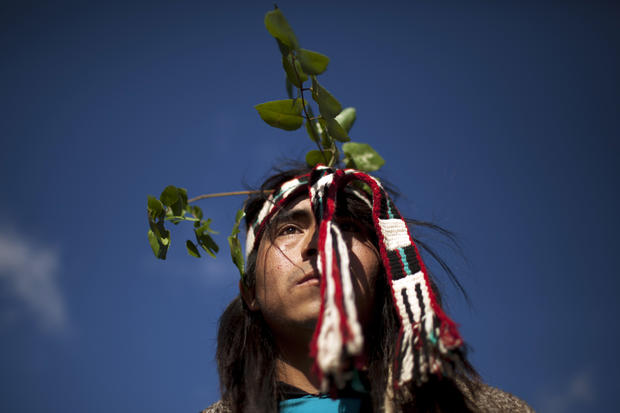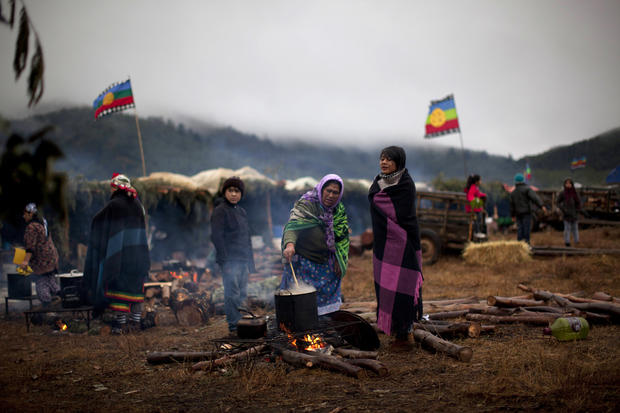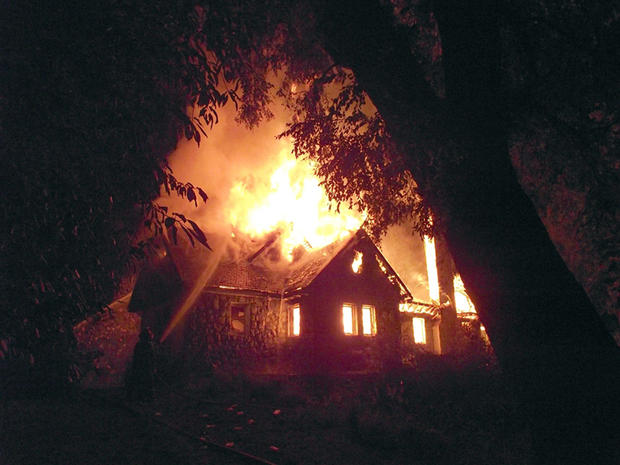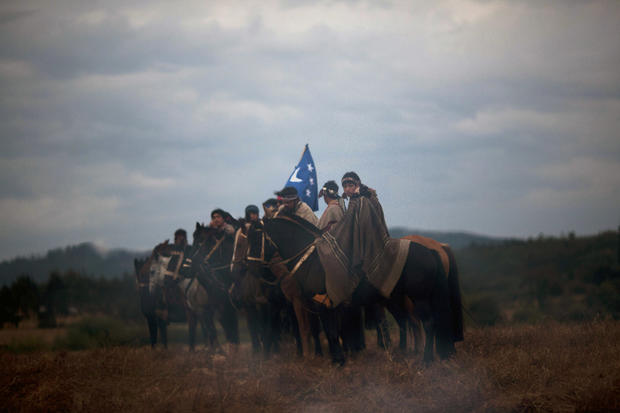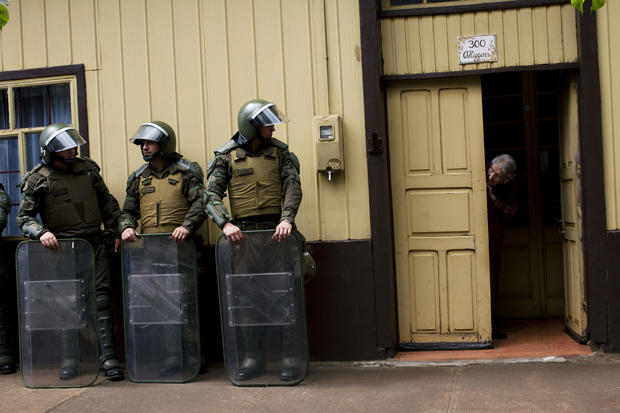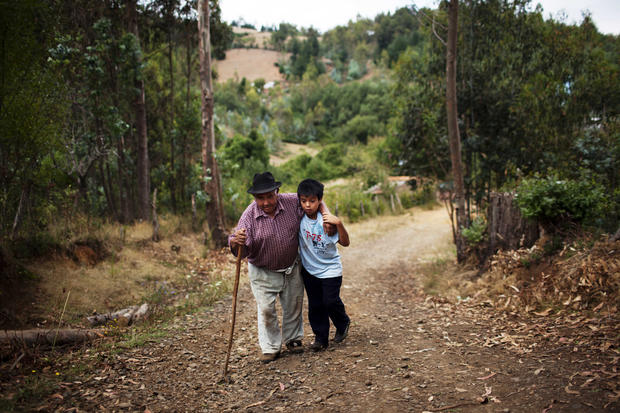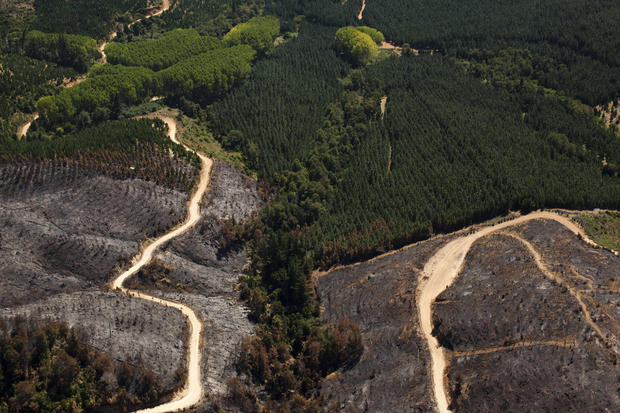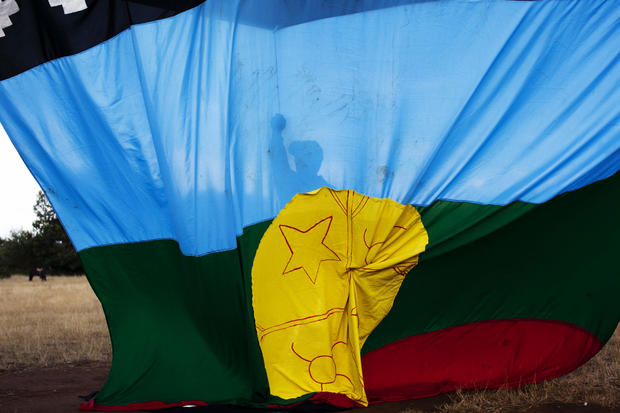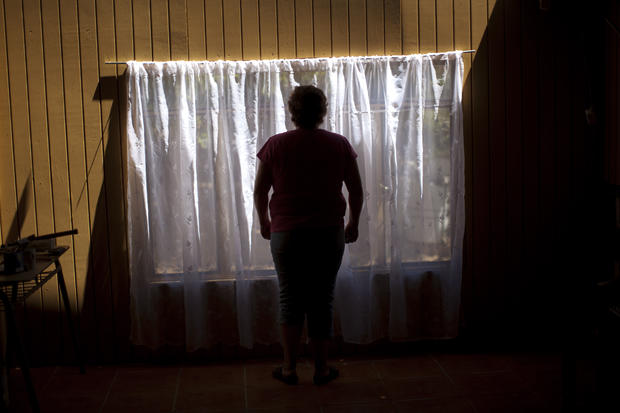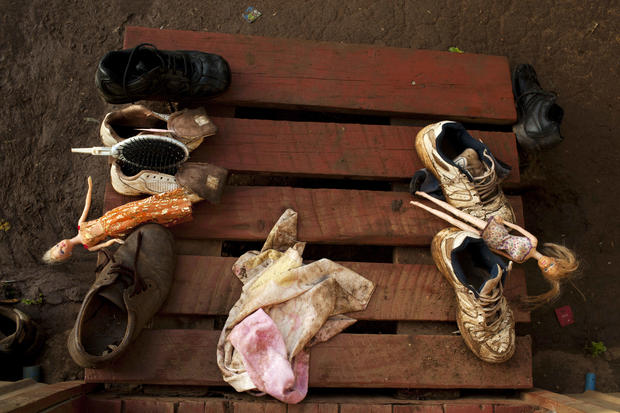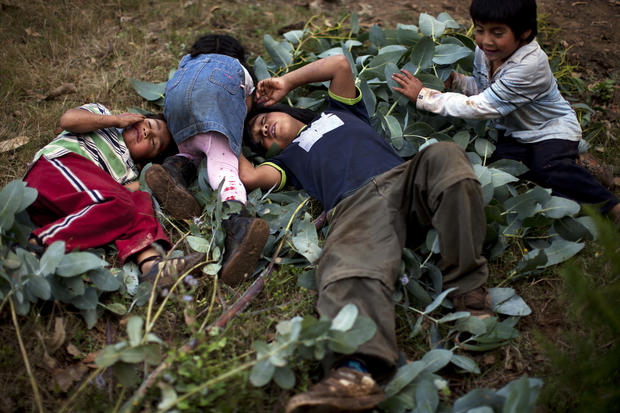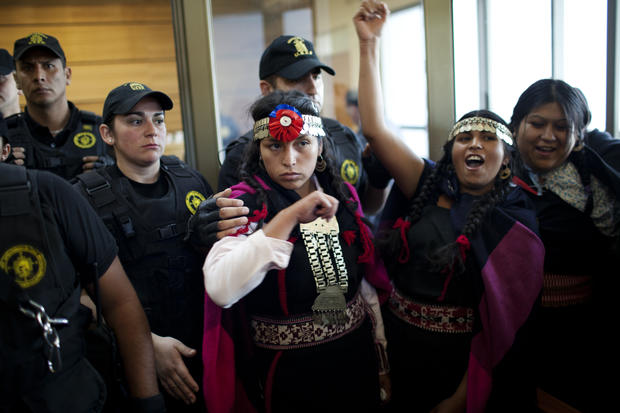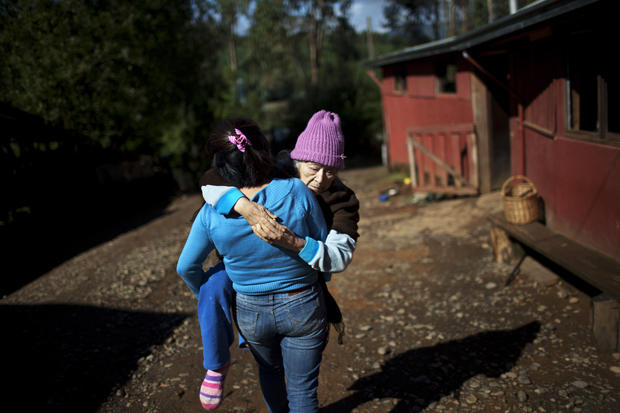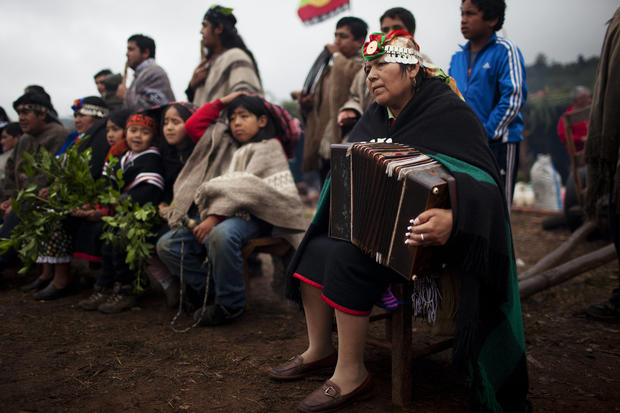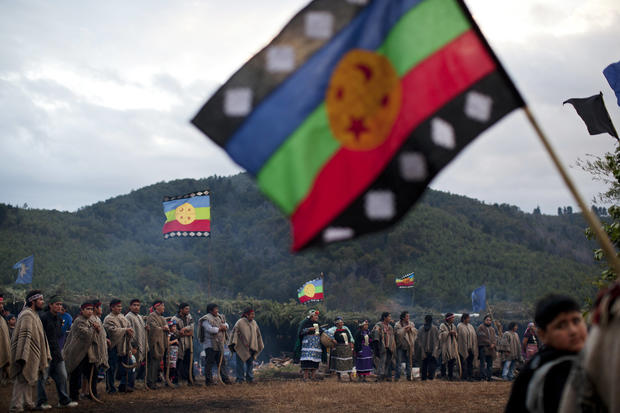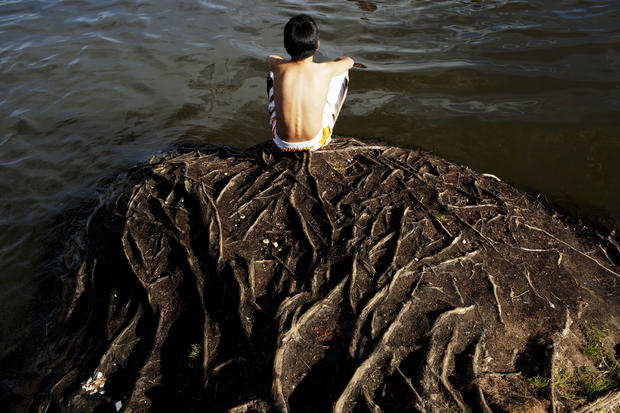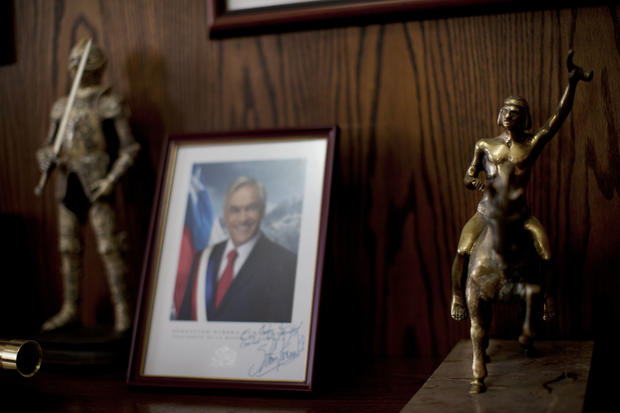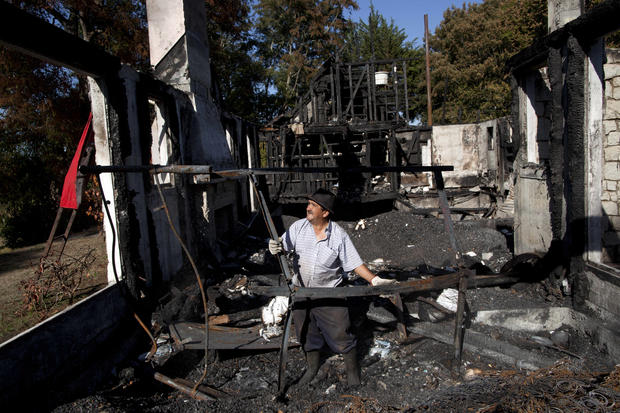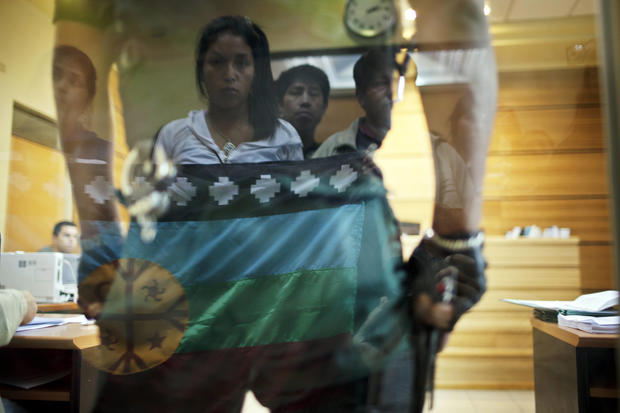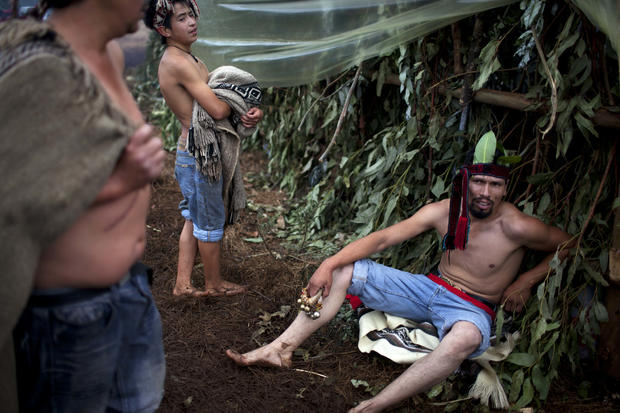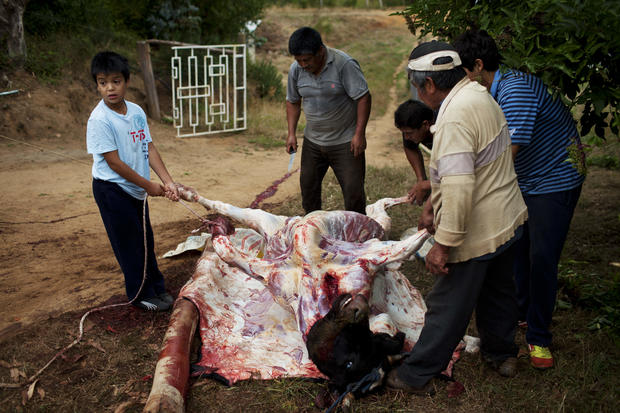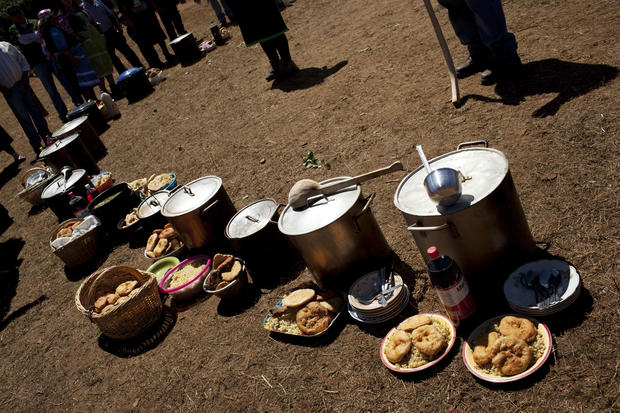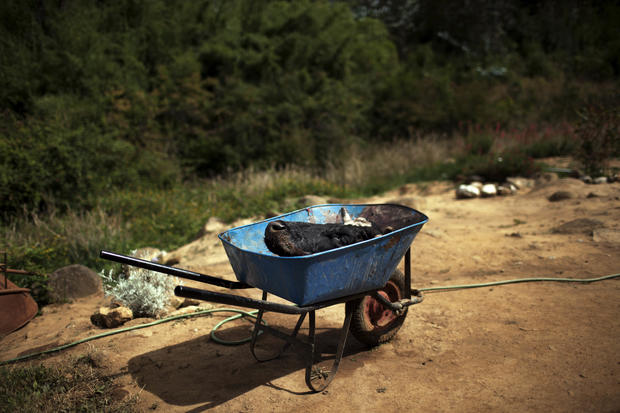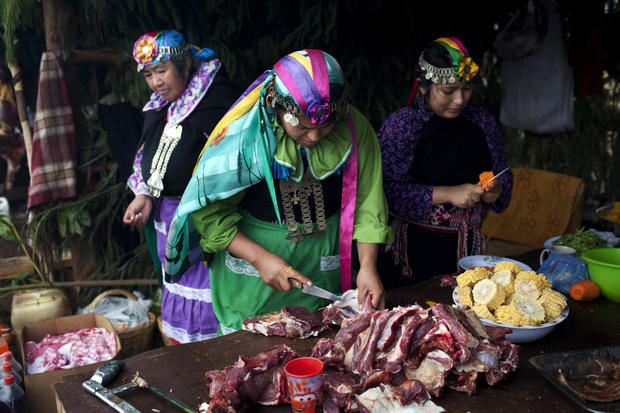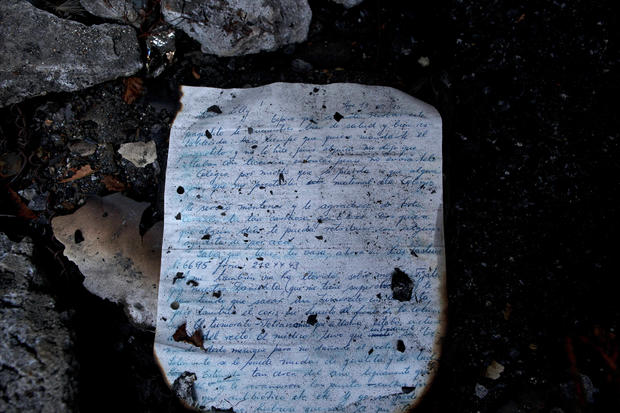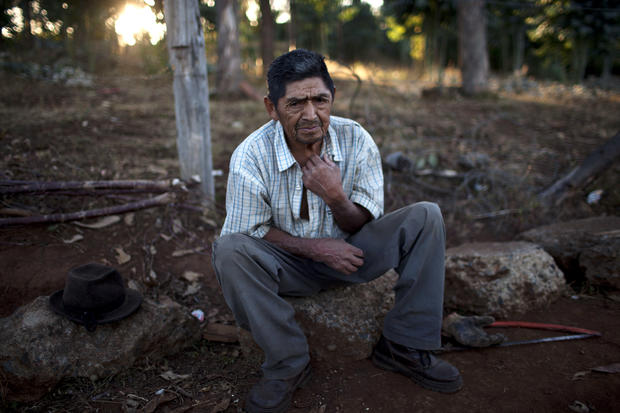Chilean tribe struggles to reclaim land
In the past five years, reported acts of violence from a land struggle between Mapuche and Chileans living on their ancestral lands have escalated 10 times over, prompting a police response that the indigenous group say has been heavy handed and abusive.
Now, after decades trying to appease Mapuche demands, Chile's government finds itself at an impasse over how to ease tensions. In the last three years, it has returned 25,000 acres to the Mapuche and encouraged timber companies and other landowners to allow people to till small plots. Yet the violence has only grown as the Mapuche demand the return of some 1 million acres - about the size of Rhode Island.
In the past five years, reported acts of violence from the Mapuche land struggle have escalated 10 times over, prompting a police response that the indigenous group say has been heavy handed and abusive.
The elderly couple, Werner Luchsinger and wife Vivian Mackay, whose family's landholdings have long been targeted by Mapuche Indians in southern Chile, were killed in the arson attack while trying to defend their home. The Luchsinger family originally emigrated from Switzerland, and bought about 740 acres in the region in 1940.
"We're not trying to kick anybody out," said Aucan Huilcaman, a Mapuche leader. "We're not asking for more roads or more seeds. We're asking for our own government because this is our land. It's not anti-Chilean, it's pro-Mapuche."
The hearing was for Fernando Millacheo, a member of the Mapuche indigenous community, who was to appear to face charges of robbery, arson and attempted murder.
Many of the 800,000 Mapuche who survive among Chile's 16.6 million people inhabit Araucania, the country's poorest region, living on the fringes of timber lands or ranches owned by European settlers.
In addition to more land, the Mapuche have called for the expulsion of timber companies they say damage the environment by planting millions of invasive pines and eucalyptus trees to supply European and U.S. consumers. They also want an apology from the Chilean government for their mistreatment as well as autonomous rule similar to that in the Catalonian region of Spain.
For centuries, many tried to claim the verdant homeland of the Mapuche by force, which once sprawled across South America to the Atlantic Ocean.
The woman's home is guarded by Chilean Carabineros, or national police, to protect her and her family from attacks by Mapuche Indian radical groups. All sides, from the Mapuche to the landowners to timber companies, have lamented the escalating land conflict, with many pointing to police and Mapuche extremists as responsible for most of the destruction.
The women were arrested along with 17 others after clashing with police outside a court where Fernando Millacheo, a member of the Mapuche indigenous community, was to appear for a hearing on robbery, arson and attempted murder charges.
Today, many of the 800,000 Mapuche who survive among Chile's 16.6 million people inhabit Araucania, the country's poorest region, living on the fringes of timber lands or ranches owned by European settlers.
In the last three years, Chile's government has returned about 25,000 acres to the Mapuche and encouraged timber companies and other landowners to allow the Mapuche to till small plots.
Yet violence has only grown as the Mapuche demand the return of nearly 1.9 million acres, larger than the state of Delaware.
Temuco is the capital city of the Araucania region, which Mapuche Indians consider their usurped ancestral land. "We're not trying to kick anybody out," said Aucan Huilcaman, a Mapuche leader. "We're not asking for more roads or more seeds. We're asking for our own government because this is our land. It's not anti-Chilean, it's pro-Mapuche."
Pinera has responded to the tensions between Mapuche Indians with land owners and timber companies by enforcing an anti-terrorism law dating back to Gen. Augusto Pinochet's dictatorship - letting suspects be held in isolation without charges and permitting the use of phone taps and secret witnesses in investigations.
The elderly couple, Werner Luchsinger and wife Vivian Mackay, whose family's landholdings have long been targeted by Mapuche Indians in southern Chile, were killed in an arson attack early Jan. 4 while trying to defend their home.
"It was terribly painful. When they told me that my bosses were burned, I broke down," said Nunez, pointing to the charred remains of the bed where he said the couple had died.
Many of the 800,000 Mapuche who survive among Chile's 16.6 million people inhabit Araucania, the country's poorest region, living on the fringes of timber lands or ranches owned by European settlers.
Social Development Minister Joaquin Lavin said their goal is to share the traditions and language of the Mapuche with the rest of Chile, pointing to New Zealand's relationship with its indigenous Maori as a model.
The government crackdown related to Mapuche attacks related to their land struggle ensnared Daniel Alveal in 2008 when he was arrested and charged in connection with an armed attack against a timber company official. Eventually absolved, he's now back in his community, where he said he still has a hard time finding a job because of his police record.
Social Development Minister Joaquin Lavin said the goal is to share the traditions and language of the Mapuche with the rest of Chile, pointing to New Zealand's relationship with its indigenous Maori as a model.
Today, many of the 800,000 Mapuche who survive among Chile's 16.6 million people inhabit Araucania, the country's poorest region, living on the fringes of timber lands or ranches owned by European settlers.
The Mapuche ultimately secured treaties with the Chilean state recognizing their land as everything south of the Bio Bio River, or roughly the entire southern half of the long, thin country. But in the late 19th century, a second wave of European settlers arrived, and to make way for them, the treaties were breached in a violent takeover called the "Pacification of the Araucania."
The property belonged to the elderly couple who had lived most of their lives on this land surrounded by soaring mountains and rich, primeval forests. For the attackers, the couple were only the latest in a long line of enemies usurping their ancestral territory.
All sides, from the Mapuche to the landowners to timber companies, have lamented the escalating land conflict, with many pointing to police and Mapuche extremists as responsible for most of the destruction.
